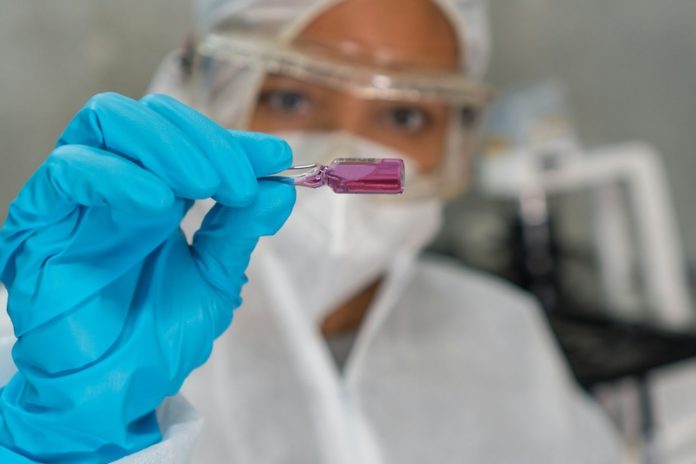
Researchers at the Hospital del Mar Research Institute, along with Cima University of Navarra and Pompeu Fabra University, have identified a group of tiny molecules unique to liver tumors that might be crucial for developing cancer vaccines.
These tiny molecules, called microproteins, are only produced by tumor cells and can trigger an immune response against the tumor. The findings were published in the journal Science Advances.
By analyzing data from both tumor and healthy tissues from over one hundred liver cancer patients, the researchers discovered these microproteins. These small molecules are produced from genes previously believed to be incapable of making proteins.
“In recent years, there’s been growing interest in these genes, which were considered non-coding due to their short length or low expression.
New techniques have shown that some of these genes can indeed produce small proteins,” said Mar Albà, an ICREA researcher at the Hospital del Mar Research Institute.
The discovery was made possible by combining computational methods such as transcriptomics, translatomics, and proteomics with lab experiments focused on studying the immune response.
A Potential Path to a Cancer Vaccine
Cancer vaccines work by helping the immune system recognize and attack molecules that are foreign to the body. Cancer cells often have mutations that create such foreign molecules, alerting the immune system.
However, liver cancer, which has a low mutation rate, poses a challenge for this approach. The study of microproteins, which are hard to detect with traditional methods, provides a promising alternative.
“This study shows that there are many microproteins expressed only in tumor cells that could be used to develop new treatments,” explained Marta Espinosa Camarena, a researcher at Hospital del Mar Research Institute.
“We’ve found that some of these microproteins can stimulate the immune system, potentially creating a response against cancer cells.
This response could be enhanced with vaccines, similar to how coronavirus vaccines work, by producing these microproteins. These vaccines could help stop or reduce tumor growth,” said Puri Fortes, a researcher at CIMA and CIBERehd.
Unlike other vaccines that rely on patient-specific mutations, this treatment could be applied to many people because the same microprotein is found in different patients.
Administering these vaccines could be straightforward, although research on their application has not yet started. “That is our goal,” the researchers said.
This breakthrough offers a new avenue for treating liver cancer, potentially leading to effective vaccines that harness the body’s immune system to fight the disease.
The researchers are hopeful that with further study, these microproteins could pave the way for a new generation of cancer treatments.
If you care about liver health, please read studies about simple habit that could give you a healthy liver, and common diabetes drug that may reverse liver inflammation.
For more information about health, please see recent studies about simple blood test that could detect your risk of fatty liver disease, and results showing this green diet may strongly lower non-alcoholic fatty liver disease.
The research findings can be found in Science Advances.
Copyright © 2024 Knowridge Science Report. All rights reserved.



